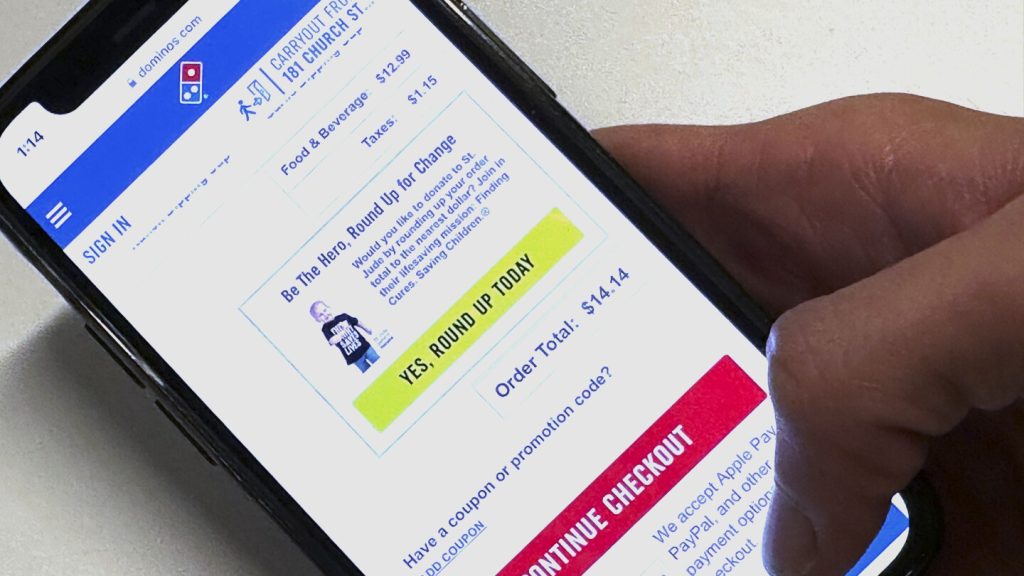Domino’s Pizza recently pledged $174 million over the next ten years to benefit St. Jude Children’s Research Hospital, with the funds coming from their longstanding roundup campaign that invites customers to donate the difference between their purchase total and the next-highest dollar amount. This initiative has already raised over $126 million for ALSAC, the fundraising organization for St. Jude, over the past two decades. The success of this fundraising tool, known as “checkout charity,” has seen a 24% increase in donations in 2022 compared to 2020, totaling $749 million among the highest making programs.
Studies suggest that asking customers to round up their purchases is generally more effective than requesting a fixed amount, as it lessens the sting of parting with money. The timing of the appeal introduces psychologically potent factors, as buyers tend to imagine their purchases in whole numbers anyway. Additionally, this method makes the act of giving more mindless, as shoppers rushing through the checkout line may not have time to consider reasons against donating. This approach has been successful in engaging everyday donors and has become a key funding stream for some organizations.
PetSmart Charities, for example, reports that over 80% of its cash donations come through the PIN pad at checkout, making it the largest grantmaker for animal welfare causes. The organization has raised millions through its PIN pad donation program, with the money supporting causes related to pets such as veterinary care and animal evacuation services during disasters. The authentic connection between the charity and the seller is crucial in encouraging customers to donate, as customers are more likely to give when they feel a personal connection to the cause.
Similarly, REI Co-op has launched a member-supported public charity to make outdoor spaces more inclusive. Sales associates at their U.S. locations engage in personal conversations with buyers, creating unique connections with nature enthusiasts that lead to donation requests at checkout. Last year, $2.2 million from 1.3 million individual donations were raised in REI stores, supporting various community-based initiatives. However, there are concerns about potential checkout charity fatigue as more programs appear in checkout lines nationwide, leading some to question the long-term effectiveness of this fundraising method.
Despite concerns about potential fatigue, Domino’s remains confident in its checkout charity strategy, which has been successful in raising millions for St. Jude Children’s Research Hospital. The company’s partnership with St. Jude, prominently featured on their pizza boxes and in-store marketing, has helped raise significant funds for the hospital’s efforts to triple the survival rate for children with cancer. Domino’s leadership believes that their commitment to charitable giving will continue to motivate customers and help meet nonprofit benchmarks, ultimately making a positive impact on the communities they serve.


